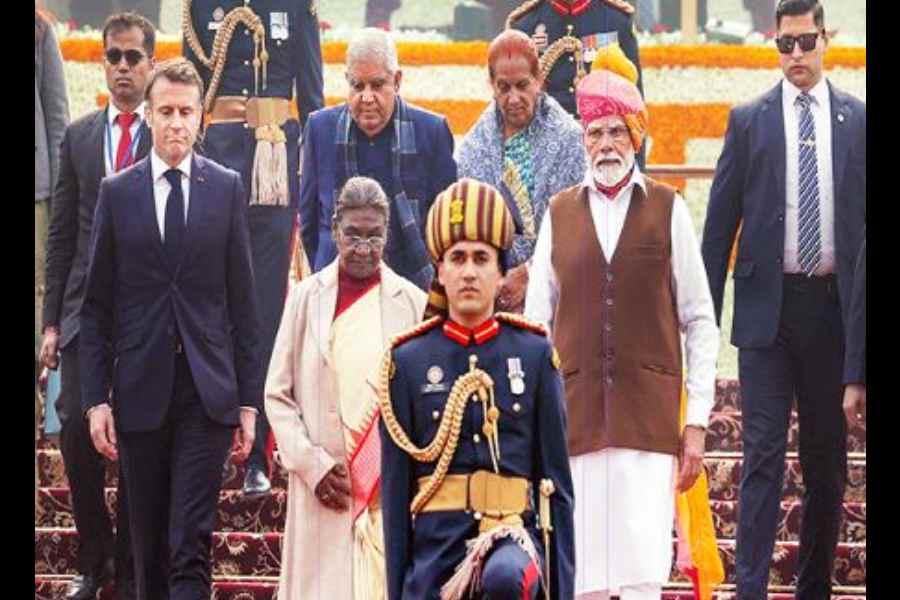France has raised with India the possible revocation of the Overseas Citizen of India card and subsequent expulsion of French journalist Vanessa Dougnac, taking the matter up at bilateral meetings held here during President Emmanuel Macron’s visit as chief guest for the Republic Day celebrations.
Foreign journalists based in India have picked up the cudgels for Dougnac and urged New Delhi to “facilitate the vital work of a free press in line with India’s democratic traditions”.
Dougnac has been accused of spreading “negative perceptions of India” through her “malicious reporting” – allegations she denies.
Asked specific questions on the matter at his Friday afternoon news conference on the Macron visit, foreign secretary Vinay Mohan Kawatra confirmed that France had raised the issue both in the run-up to Macron’s trip and at the discussions here during the visit.
Dougnoc – who writes for the conservative French weekly Le Point and the Catholic newspaper La Croix -- was issued a two-week notice on January 19 by India’s home ministry relating to the possible revocation of her OCI card for visa violations.
She has to respond by February 2, after which a final decision will be taken.
Dougnoc has in a statement denied all the allegations and imputations against her and her conduct. Married to an Indian, she has been living in India for the past 22 years.
In her statement, she said India was her home and “a country which I deeply love and respect, and I have never engaged in any acts that are in any manner prejudicial to Indian interests as is being alleged”.
She urged everyone to respect her privacy while the process ran its course.
“This has been brought to our attention by the French side both prior to the visit and during the visit,” Kwatra said.
“We have shared with them and they appreciate this understanding that the frame of reference in which we are looking at is the compliance with the rules, and the relevant departments are seized of the matter and looking at it from all the angles.”
Kwatra was asked whether his ministry or the Indian government had an opinion on Dougnac’s journalism, since her visa status was being tied to what she had written in India.
“I don’t think this has got anything else to do with the other aspects of journalism, etc,” he replied.
“People are free to do what they are accredited to do in a given space but here I think the principal issue is whether the person is compliant with the rules and regulations of the state under which they have come.”
Thirty foreign correspondents based in India have issued an open letter expressing “deep concern” at the official notice issued to Dougnac “which warns of the impending withdrawal of her OCI status as a consequence of her work as a journalist”.
The letter notes that she is “highly regarded as a senior journalist covering South Asia” and underscores that she has cooperated with the relevant authorities “in an effort to remove any misunderstanding”.
The letter flags the increasing restrictions foreign journalists have been facing in India.
“While foreign correspondents have grappled with increased visa restrictions in recent years, our colleagues with OCI status have faced particular difficulty from new and often opaque administrative burdens, hampering their ability to work as journalists,” the letter says.
“We hope Ms Dougnac’s case is resolved quickly as it affects not only her livelihood but also her family life, and we request the Indian authorities to facilitate the vital work of a free press in line with India’s democratic traditions.”










